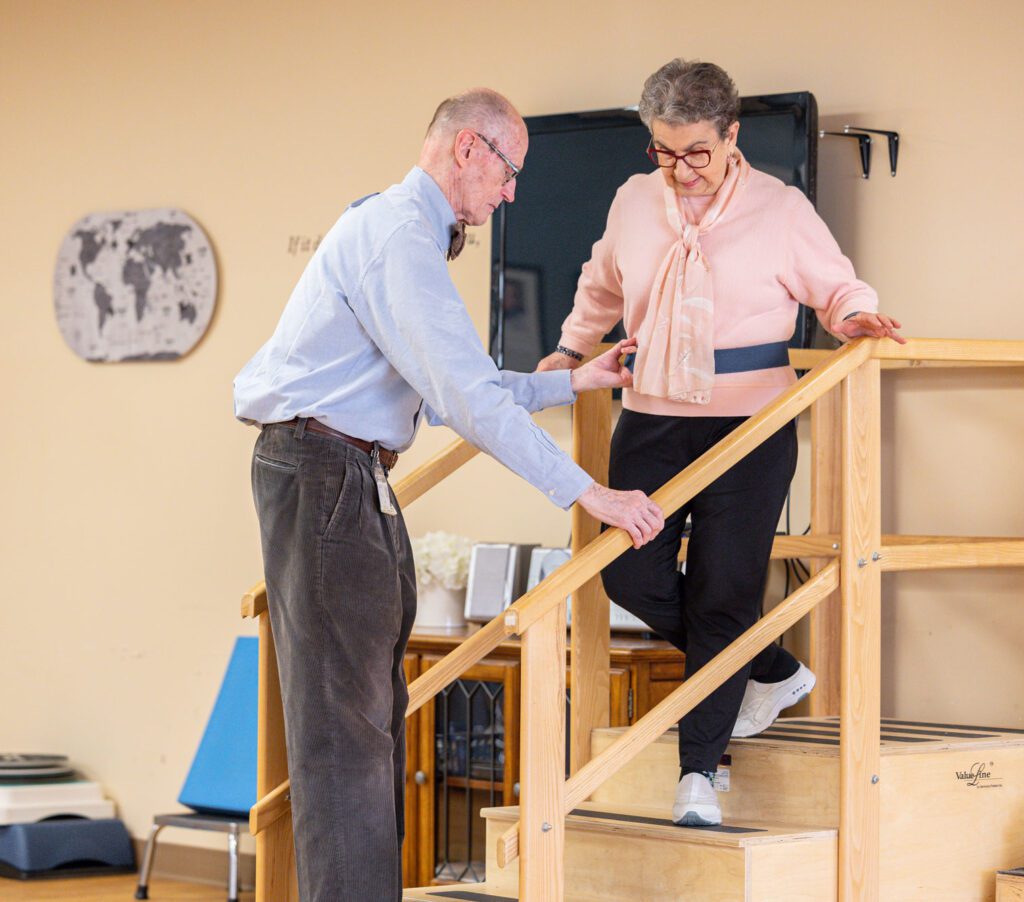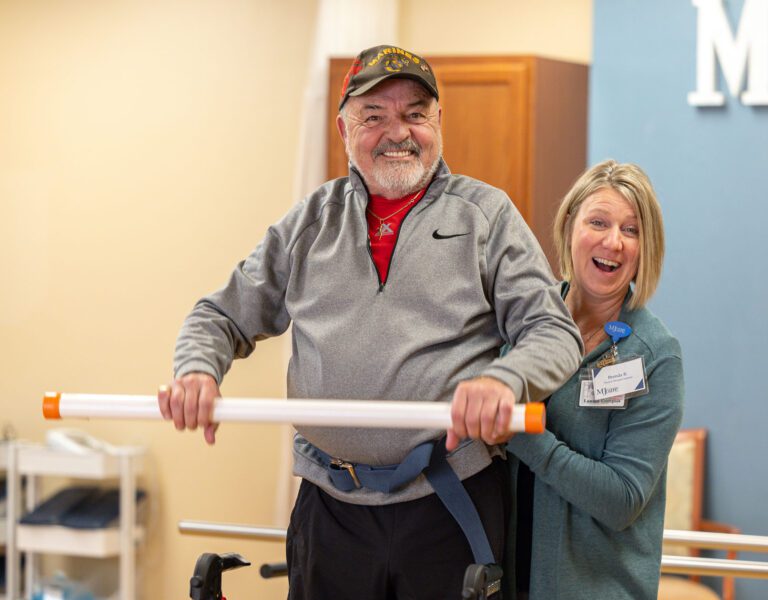Short-Term Rehabilitation
Short-term rehab at Lasata Senior Living offers a personalized and comprehensive program designed to enhance the quality of life for our residents. Focusing on individuals recovering from surgery, injury, or illness, we provide a superior level of care to meet each resident’s specific needs.
Services
Below is a list of our short-term rehab services provided by Lasata Senior Living, enhanced by physical, occupational, and speech therapy:
- Stroke and Neurological Rehabilitation
- Orthopedic Rehabilitation
- Fall Prevention and Balance Training
- Arthritis Management
- Musculoskeletal Rehabilitation
- Speech-Language Therapy
- Incontinence Programs
- Physical Training
- Cognitive Retraining
- Community Re-Entry
- Wound Care Services
- Home Safety Assessments
- Cardiac Management
- Pain Management Modalities
Immerse yourself in the highest quality of care at our recently renovated 130-bed rehabilitation and skilled nursing care.
Floor plans and amenities
Lasata Care Center offers a diverse range of amenities and floor plans designed to meet the unique needs and preferences of our residents:
- Private rehabilitation suites
- Cable TV, WI-FI, in room private phones, whirlpool baths
- Private and public lounges
- Hot meals & snacks
- Gazebo, walking trails and gardens
Testimonials
Social Activities
Lasata Care Center offers the residents opportunities to become engaged in their community with a person-centered approach to Life Enrichment. A variety of one-to-one, comfort-based, nature and sensory, social, spiritual, and recreational activity programming is available 7 days per week. Our goal is to offer engagement opportunities that are purposeful and meaningful to each resident.

Lasata FAQs
Skilled care is defined as care that requires the services of a trained nurse. This might include injections, tube feedings, IV therapy, or rehabilitation. Skilled care provides 24-hour medical care and rehabilitation to make the transition from the hospital to home more accessible. Whether recovering from an illness or surgery or needing long-term care, skilled care centers offer privacy and peace of mind.
Assisted living is for those who require more help with the activities of daily living but do not need nursing care. Friendly, trained staff members are available 24 hours daily to help with meals, dressing, personal hygiene, and medications.
Independent living has been designed to support complete, comfortable lifestyles for active people who can take care of themselves. It provides necessary services that free you from heavy housekeeping, yard work, and maintenance chores.
Long-term care is any care a person needs, whether at home or in a facility such as a nursing home or an assisted living community.
Insurance coverage is available to cover certain costs of nursing facility care. Some plans will supplement Medicare or Medicaid coverage and cover expenses beyond what these plans cover. Others pay for a portion of the daily cost for a set amount of days in a nursing facility. If you or your family member has such insurance coverage, bring a copy of the policy to the attention of the nursing facility. You can then work with the administrative staff to discuss how they want to file claims for the best benefits.
The Department of Veterans Affairs (VA) provides care in its facilities to veterans needing skilled or intermediate nursing care. The VA also offers professional and intermediate care to veterans through contracts with community nursing homes.
Contact your local Department of Welfare or the Department of Health for an application. Because Medicaid is based on financial need, you must provide extensive information on your income, assets, and savings.
- It would help if you met a state-determined poverty level and specific health criteria.
- Medicaid is also the primary payer of services for persons with Mental Retardation and Developmental Disabilities.
- For qualifying individuals, Medicaid pays for nursing facility services in a certified skilled or non-skilled facility.
- In many states, Medicaid will pay for assisted living services, although coverage is limited.


